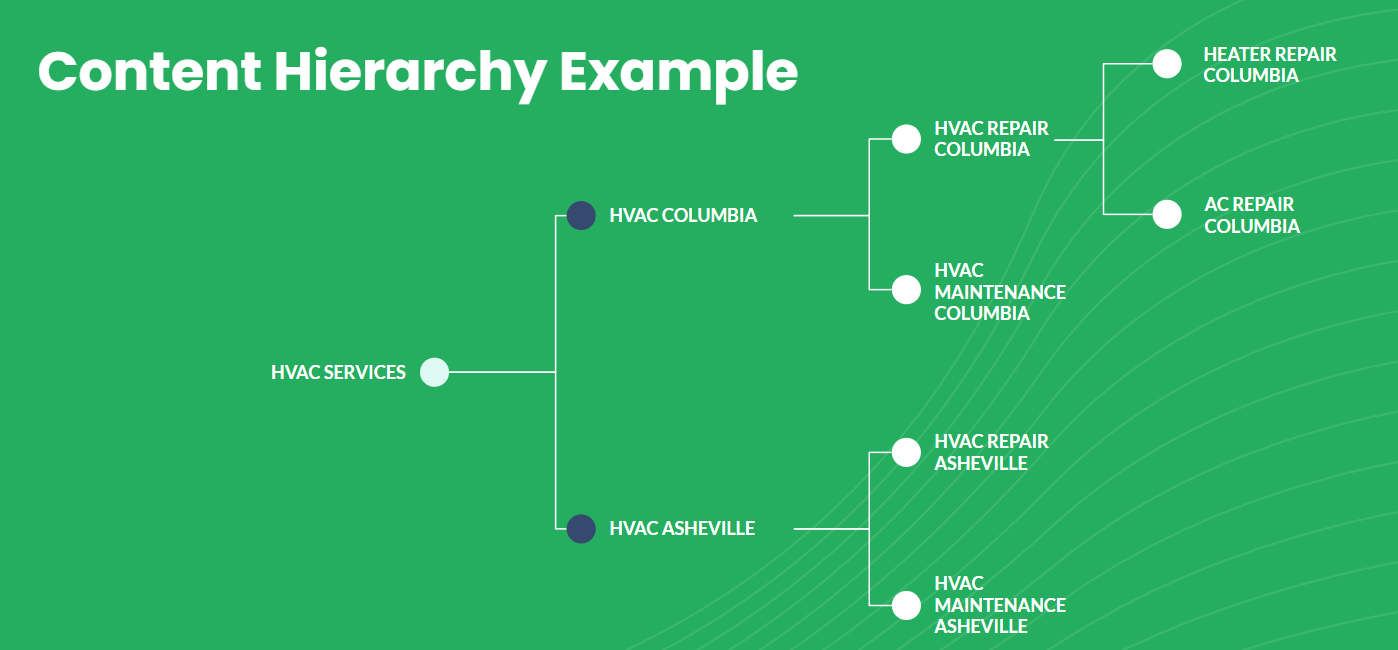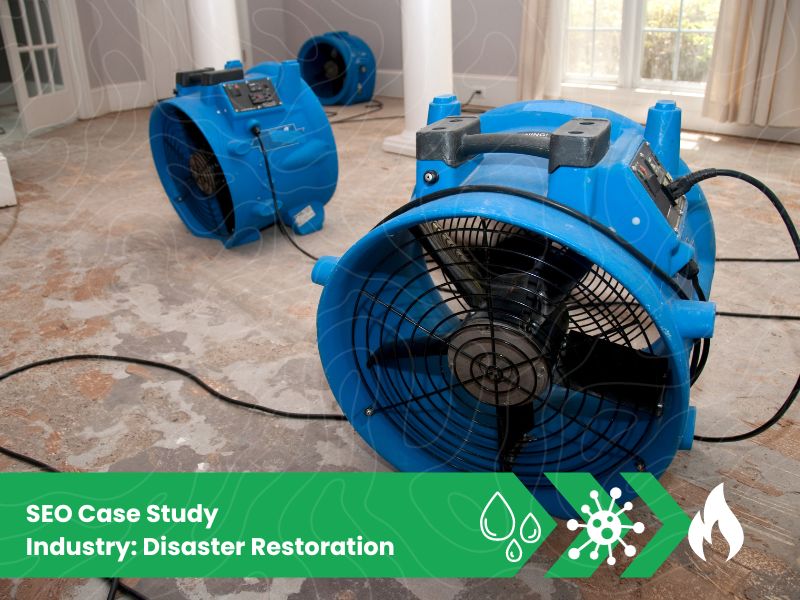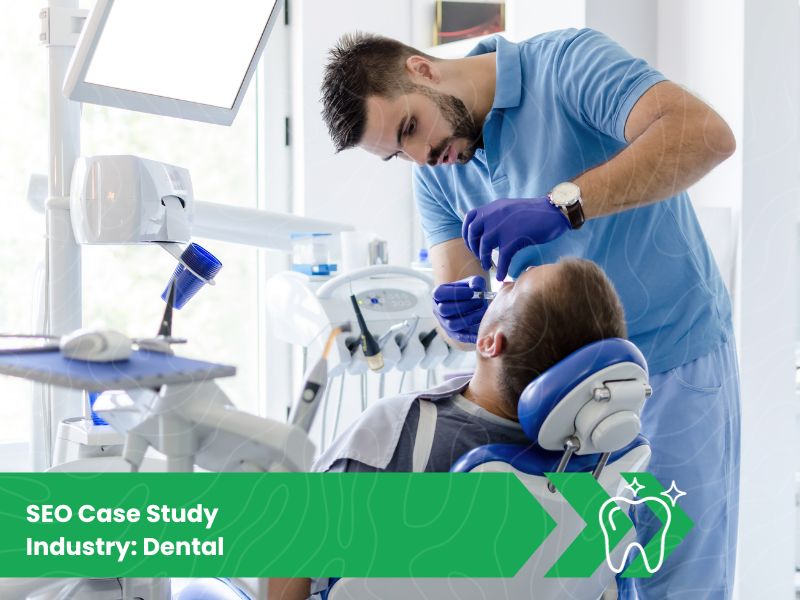HVAC SEO: Small Business SEO Done With Integrity & Transparency
If you’re looking to level up your online game without getting caught up in any shady HVAC SEO stuff, you’re in the right place. I’ve been in the SEO game for a while now, and I’ve helped a lot of HVAC companies like yours get more visible online. So, let’s work together to grow your digital presence in a legit way, without any tricks or shortcuts!
The Essence of HVAC SEO:
Unlocking Digital Excellence
Diving into HVAC SEO isn’t just about sprinkling a few keywords and hoping for miracles. It’s about transforming your online presence into a robust and reliable system, much like the top-tier HVAC systems you service. Effective HVAC SEO is a multifaceted approach that encompasses a wide range of strategies, from local SEO to technical SEO and content creation.
SEO is a complicated, ever changing service. This guide will help you understand some of the most important things to start your strategy.
Local SEO: Your Secret to Dominating the Neighborhood
When it comes to HVAC services, local SEO is your secret weapon. It ensures that your business appears prominently when someone searches for “HVAC near me” or “AC repair in Charleston, SC.” Remember, relevance is key here. People are looking for a technician they can trust and who is conveniently located.
Crafting a Sturdy SEO Foundation: Your Website
Imagine your website as the digital storefront of your HVAC business. It’s the first impression potential customers will have of your company, so it needs to be clear, informative, and easy to navigate. A well-designed website with a strong SEO foundation is essential for attracting and converting leads.
Website Must-Haves for HVAC SEO Success
- Services Page: Be specific about the HVAC services you offer. Highlight your expertise and unique selling points. Then additionally add individual service pages under the main parent page in order to become a topical authority in the HVAC industry.
- About Us Page: Humanize your brand by sharing your story and showcasing your team. People want to know who they’re doing business with.
- Contact Information: Make it easy for potential customers to reach you. Display your phone number, email address, and physical address prominently.
- Blog: A blog is a great way to provide value to your audience and boost your SEO rankings. Share informative articles about HVAC maintenance, energy efficiency, and other related topics.
Keyword Research: Unlocking the Language of Your Customers
Keyword research is the foundation of any successful SEO strategy. It involves identifying the words and phrases that potential customers use when searching for HVAC services. By targeting relevant keywords, you can increase the visibility of your website and attract more traffic.
Finding the Right Keywords
Keyword research is like a treasure hunt. Not all keywords are concidered equal. High volume keywords are not always the best keywords to go for, usually longer tail keywords that have lower search volume can massivly increase your conversion rates for SEO. Keywords like “Emergency HVAC Services in Charleston, SC” are extremely high converting keywords that although they do not have as high of volume as a keyword like “HVAC Company in Charleston, SC” they tend to yeild extremely high conversion rates for your business.
Keyword Research Tools:
- Google Keyword Planner: A free tool from Google that provides keyword suggestions and search volume data.
- Google Trends: Is a free tool that you can use to itentify what search terms are popular and you’re even able to compare up to 5 different keywords in order to verify what keywords are being searched more!
- SEMrush: A paid tool that offers more advanced keyword research features, including competitor analysis and keyword difficulty.
- Uber Suggest: Is similar to SEMRush (Although not as accurate) but it is a free tool to use to start!
On-Page SEO: Optimizing Your Website for Search Engines
On-page SEO involves optimizing individual pages on your website to make them more appealing to search engines. This includes optimizing titles, meta descriptions, header tags, and images.
Writing for SEO
Start with a catchy headline that includes your main keyword. Break your content into digestible paragraphs with subheadings (yes, just like this article!). And don’t forget to sprinkle in those keywords naturally.
Structuring Your Content
Use H2 and H3 tags for your subheadings. They’re not just for looks; they help Google understand the hierarchy and relevance of your content.
Page Hierarchy
Your content needs to follow a structure. Parent pages need to be more broad and encompass a ton of information, child pages should be more specific and segmented. Blogs should answer questions your users are asking. For Example check out the image below.
Off-Page SEO: Building Your Digital Reputation
Off-page SEO is a crucial aspect of search engine optimization (SEO) that focuses on improving a website’s ranking and visibility in search engine results pages (SERPs) through external factors. Unlike on-page SEO, which involves optimizing elements within a website, off-page SEO strategies extend beyond the website’s control.
Backlink Building:
Backlinks are one of the most critical off-page SEO factors. They represent links from other websites pointing to your website. These backlinks serve as endorsements or “votes of confidence” from other websites, influencing your website’s authority and credibility in the eyes of search engines. Acquiring high-quality backlinks from reputable websites can significantly improve your ranking and visibility in SERPs. Guest blogging, submitting your website to local directories, and engaging in broken link building are effective strategies for building backlinks.
Social Media Engagement:
Social media platforms have become increasingly important in off-page SEO. Engaging with your audience on social media, posting relevant content, and encouraging shares and likes can help increase your website’s visibility and build brand awareness. Social media engagement signals to search engines that your website is active and popular, which can positively impact your ranking.
Citations:
Citations are mentions of your business name, address, and phone number (NAP) on other websites, such as local directories, review sites, and industry-specific platforms. Consistent and accurate citations help search engines verify the legitimacy and authenticity of your business. They also contribute to local SEO, making your website more visible in local search results.
Brand Mentions and Mentions:
Brand mentions and mentions, even if they do not include a direct link to your website, can positively impact your off-page SEO. When other websites mention your brand or products, it generates awareness and buzz around your business. Search engines recognize these mentions as a sign of your brand’s authority and credibility, which can indirectly boost your ranking. (This, in my experience, can be a hit or miss, in my experience. Having the backlink helps way, way more. But I wanted to list it regardless as a possible tactic.)
Technical HVAC SEO: The Backbone of Your Website
Technical SEO involves optimizing the technical aspects of your website to improve its performance and user experience. This includes factors such as site speed, mobile responsiveness, and structured data. The technical side of it is honestly more important than the content side of it. For example, if you are adding thousands of words of fully optimized SEO content to your website each month but your website is slow, or not optimized for mobile; you will see little to no improvements. Googles standards have to be met first before the SEO content strategy can begin. Sometimes this means a complete rebuild from the ground of of your site.
Site Speed:
Speed is a critical factor in user experience and SEO. A slow-loading website will frustrate users and increase bounce rates. Aim to keep your page load time under 3 seconds. Use tools like Google PageSpeed Insights to keep your loading times in check.
Mobile Optimization:
In today’s mobile world, it’s essential to have a website that is optimized for mobile devices. A mobile-friendly website will load quickly and be easy to navigate on smartphones and tablets.
Structured Data:
Structured data is a way to provide search engines with more information about your content. This can help your website appear in rich results, such as featured snippets and knowledge panels.
Security:
Security is another important aspect of technical SEO. A secure website is less likely to be hacked or compromised, which can protect your data and reputation.
Technical SEO can be complex, but it’s essential for any website that wants to succeed in search engines. By following these tips, you can improve your website’s performance and user experience, and boost your SEO rankings.
HVAC SEO Done with Integrity & Transparency - Ethical, Whitehat SEO that won't harm your rankings in the future.
Engaging in black-hat SEO tactics, such as keyword stuffing, cloaking, link schemes, and other unethical practices, may yield temporary results but ultimately leads to penalties from search engines. These penalties can result in lower rankings, reduced visibility, and a damaged reputation, all of which can negatively impact a business’s bottom line.
Instead of resorting to questionable tactics, HVAC businesses should focus on creating high-quality content that provides genuine value to their target audience. This includes informative blog posts, educational videos, comprehensive guides, and other resources that address the needs and concerns of potential customers.
Additionally, ethical SEO practices involve optimizing websites for both users and search engines. This includes ensuring that websites are mobile-friendly, load quickly, and offer a seamless user experience. Technical SEO elements such as proper metadata, sitemaps, and structured data markup should also be addressed to enhance the visibility and crawlability of a website.
Building high-quality backlinks from reputable websites is another essential aspect of ethical SEO. Rather than engaging in link schemes or purchasing low-quality links, businesses should focus on creating link-worthy content that naturally attracts backlinks from other websites. Guest posting on relevant industry blogs, participating in forums and discussions, and engaging with influencers can help in this regard.
Transparency is another key component of integrity in HVAC SEO. Businesses should be transparent about their SEO efforts and avoid making unrealistic promises or guarantees. It’s important to set realistic expectations and communicate the ongoing nature of SEO, as it requires consistent effort and patience to achieve sustainable results.
Measuring Your SEO Success in the HVAC Industry
Measuring your SEO success is crucial in determining the effectiveness of your SEO efforts and making data-driven decisions to optimize your online presence. There are several key metrics and tools that can help you track and evaluate your SEO progress:
Organic Traffic:
Organic traffic refers to the number of visitors to your website who arrived through unpaid search results. A steady increase in organic traffic indicates that your SEO efforts are paying off and your website is becoming more visible to users. Google Analytics provides detailed information about your organic traffic, including the keywords users searched to find your website.
Keyword Rankings:
Monitoring your keyword rankings in search engine results pages (SERPs) is another important aspect of measuring SEO success. You can use tools like Ahrefs, SEMrush, or Moz to track your rankings for specific keywords or phrases. Improved rankings for relevant keywords indicate that your website is becoming more prominent and competitive in organic search results.
Click-Through Rate (CTR):
The click-through rate (CTR) measures the percentage of users who click on your website’s search result in the SERPs. A high CTR indicates that your search result is compelling and relevant to users. You can monitor your CTR in Google Search Console to identify which keywords and meta descriptions are driving the most clicks.
Bounce Rate:
The bounce rate is the percentage of users who leave your website after viewing only one page. A high bounce rate can be a sign of poor user experience or irrelevant content. By analyzing your bounce rate in Google Analytics, you can identify the pages that need improvement and work on optimizing them for better engagement.
Time on Page:
The time on page measures how long users spend on a specific page of your website. A longer time on page indicates that users are engaged with your content and finding it valuable. Google Analytics provides insights into the average time spent on each page, which can help you understand how effective your content is in keeping users engaged.
Conversion Rate:
If your website has specific conversion goals, such as generating leads or making sales, tracking your conversion rate is essential. The conversion rate is the percentage of visitors who take a desired action on your website, such as filling out a form, making a purchase, or signing up for a newsletter. By monitoring your conversion rate, you can assess the effectiveness of your SEO efforts in driving measurable results.
Backlinks:
Backlinks are links from other websites pointing to your website. Quality backlinks from reputable websites are a strong signal to search engines that your website is credible and authoritative. You can use tools like Ahrefs or SEMrush to track your backlink profile and identify opportunities to build high-quality backlinks.
Brand Mentions and Social Engagement:
While not directly related to organic search rankings, monitoring brand mentions and social engagement can provide valuable insights into your overall online presence and reputation. Positive brand mentions and high levels of social engagement can contribute to brand visibility and indirectly impact your SEO performance.
Ready to Get Started?
Local SEO can be a game changer for your HVAC business. Remember, it’s not just about being online; it’s about being found by the right people in your community. Keep evolving your strategies, stay connected with local trends, and don’t be afraid to try new tactics. If you need more personalized advice or help, I’m always here to lend a hand. Let’s make your business shine online!
By implementing a well-defined SEO strategy and utilizing the effective measurement techniques outlined in this guide, Charleston businesses can leverage the power of search engines to reach their target audience, drive measurable results, and achieve a positive return on investment. Remember, successful SEO is a journey, not a destination. By consistently tracking your progress, adapting your strategies, and staying committed to your goals, you can unlock the full potential of SEO for your Charleston business.
SEO Strategies Developed & Implemented
Featured SEO Case Studies
More Case Studies Coming soon!
FAQs About HVAC SEO for Your Business
1. What makes HVAC SEO different from general SEO?
HVAC SEO is specialized; it’s not just about getting to the top of Google but connecting with local customers in need of your specific services. It’s about understanding the seasonal nature of your business and aligning your SEO strategy accordingly. For example, targeting “AC repair” during summer months and “furnace repair” as the colder season approaches.
2. How often should I update my HVAC website content for SEO?
Consistency is key. I recommend updating your blog at least twice a month with fresh, relevant content. This could be seasonal maintenance tips, new service offerings, or customer success stories. Regular updates signal to search engines that your site is active and providing value, boosting your SEO rankings.
3. Can social media impact my HVAC company’s SEO?
Absolutely. Social media doesn’t directly affect your SEO rankings, but it influences them through increased visibility, website traffic, and engagement. Sharing your blog posts, customer testimonials, and special offers on platforms like Facebook and Instagram can drive more traffic to your website, indirectly boosting your SEO.
4. What’s the most common mistake HVAC companies make with their SEO?
Neglecting local SEO. Many HVAC companies forget to optimize for local search, which is crucial in this industry. Ensure your business is listed on Google My Business, and your website mentions local keywords and geographical areas you serve. This makes your business more discoverable to local customers.
5. How long does it take to see results from HVAC SEO efforts?
SEO is a marathon, not a sprint. Typically, it can take 3-6 months to start seeing significant results from your SEO efforts. Patience and consistency are crucial. Keep refining your strategy based on analytics and stay updated on SEO best practices to continue improving your rankings.
6. Should I hire an SEO agency or handle it in-house?
This depends on your resources, expertise, and bandwidth. If you have the time and willingness to learn, you can start with in-house SEO efforts. However, hiring an agency or a consultant specializing in HVAC SEO can accelerate your progress and allow you to focus on running your business. Either way, ensure whoever is handling your SEO understands your industry and follows ethical SEO practices.
Ready to Begin?
Fill out the form below and I'll get right to work.





